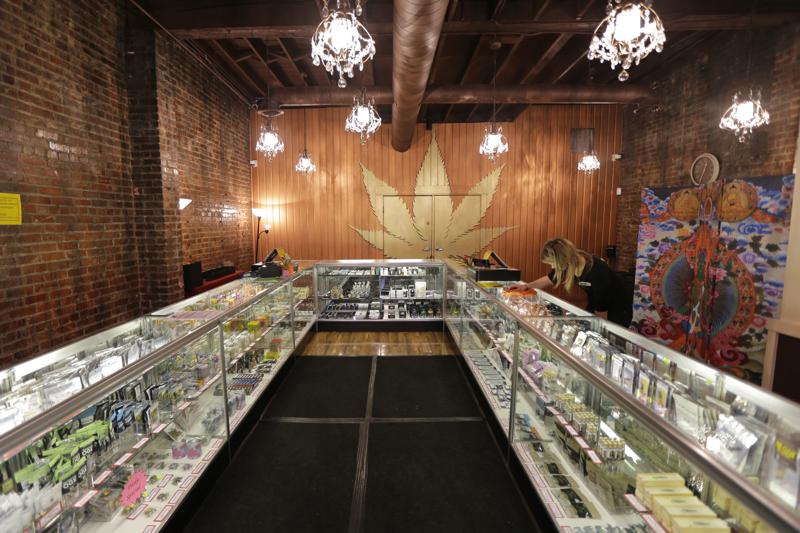

It was designed as an innovative way to promote COVID-19 vaccinations, but Washington’s new “joints for jabs” program is off to a rough start.
Officials announced Monday that the state’s nearly 500 licensed marijuana retailers could begin hosting vaccine clinics and offering a single, free pre-rolled marijuana cigarette to any 21-plus adult who received a shot there.
It’s one of many vaccine incentives being offered in Washington, including free pints of beer, sports tickets and prize money to lure those who have been hesitant or just lazy. Washington and Colorado in 2012 were the first states to legalize the adult use of marijuana, with regulated sales beginning in 2014. The industry brought Washington close to $474 million in taxes in the last fiscal year.
But few things are simple in an industry that’s illegal under federal law, and the hurdles to offering the free joints are substantial enough that few of the state’s legal pot shops are saying they will participate, even if they would like to do so.
Retailers told the state Liquor and Cannabis Board during a meeting Wednesday that many don’t have the space to host a vaccine clinic. Some health care providers are queasy about setting up a clinic on the site of a marijuana business because they don’t want to jeopardize federal funding by being involved in the distribution of an illegal drug. And the program is set to expire July 12 — too soon for them to offer a second shot to customers who might show up for a first shot in mid- to late June.
The retailers also ruefully noted that the Liquor and Cannabis Board allowed breweries, wineries and bars to offer a free drink to customers who merely showed proof of vaccination — no onsite clinic required.
“We’re hearing from retailers that they want to be a part of this,” said Aaron Pickus, a spokesman for the Washington CannaBusiness Association, an industry group. “Why can’t we do this like the wineries and breweries did it?”
Board chair David Postman told them it was a member of the business group who late last month suggested the program, which he and Gov. Jay Inslee’s office thought was a great idea.
While a marijuana retailer in Arizona offered free vaccines along with complimentary joints or edibles early this month, no other state appears to have a similar “joints for jabs” program. “We are out ahead on this,” Postman said.
The requirement that the pot shops hold onsite vaccination clinics was partly motivated by the fact that people aren’t allowed to consume cannabis at licensed retailers, unlike alcohol at a brewery or winery, he said suggesting that people who showed their vaccine cards at multiple pot shops could wind up with a lot of free joints that might be given to youngsters.
He also said that the board gave the marijuana stores an advantage it didn’t give to alcohol purveyors: a tax break on the product they give away.
“I guess I just beg for a little understanding,” Postman said. “If it’s not the right thing, then that’ll be too bad, because I think we all need to get as many people vaccinated as possible.”
Daniela Bernhard, the co-owner of Uncle Ike’s cannabis store in Seattle, told the board the industry is excited to be included in efforts to boost vaccination, but “disappointed that our legal and heavily regulated sector continues to be treated differently than our peer sectors in Washington.”
“If we are trusting adults driving with their vaccination cards to get a pint of beer and then responsibly get to their next destination, we can also trust that adults will pick up a joint and enjoy it later in a legal setting,” Bernhard said.
Bernhard said Uncle Ike’s effort to host a vaccine clinic had been rejected by two health care providers, though she declined to identify them.
One public health agency, the Spokane Regional Health District, had not yet been approached by any licensed marijuana shops about setting up a vaccine clinic but it had an answer ready.
“We would not be able to provide vaccine because of concerns about federal funding,” spokeswoman Kelli Hawkins said.